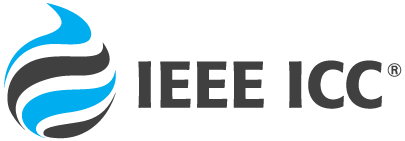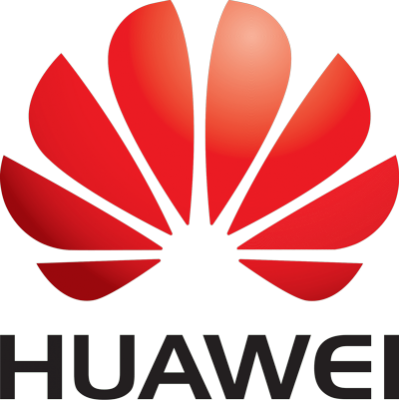There are still many challenges and open problems to resolve on FD operation, and the vivid research area continues soaring at its flat peak of popularity. In fact, IEEE ComSoc has recently established Emerging Technologies Initiative (ETI) on Full Duplex Wireless Communications for nurturing the development of the new technology, and the present workshop series has been adopted as an organic activity within the new ETI. In order to achieve the full potential of FD transmission, it is necessary to cope with the self-interference issue even more efficiently and develop new signaling mechanisms and advanced networking protocols, while reducing the energy consumption due to the required additional hardware.
The objective of the IEEE ComSoc ETI-supported workshop series is to present the very latest state-of-the-art research on FD techniques, protocols, and applications exploring all aspects of future wireless and wired network design. This workshop will attract contributions exploring the following topics of interest (but not limited to):
- Advanced full-duplex antenna and transceiver designs (incl. cable modems)
- Experimental evaluation of FD transceivers and networks
- Advanced self-interference cancellation techniques
- Modelling of self-interference and channel measurements
- Massive MIMO and mmWave full-duplex transceiver design
- Performance analysis of FD transceivers, systems and networks (including wired systems)
- New MIMO techniques for multiuser interference cancellation
- Non-orthogonal multiple access (NOMA) in full-duplex systems
- Machine learning for full duplex applications
- Physical layer security and full-duplex techniques
- Full-duplex relaying and cooperative communications
- UAV, low-latency and ultra-reliable communications
- Full-duplex techniques with wireless power and energy harvesting
- Full-duplex device-to-device and M2M communications
- Resource allocation, medium access control, and scheduling
- Full-duplex small cell deployments and heterogeneous networks
- Ultra-reliable low-latency MAC and routing protocols for FD networks
- Cross-layer design, virtualization and wireless caching
Important Dates
Paper Submission
January 20 27, 2020
Acceptance Notification
February 20, 2020
Camera-ready
March 1, 2020
Submission Guidelines
We seek original contributions that have neither been previously published nor currently under review. Authors can submit a full paper (up to 6 pages) that describes complete work in a self-contained manner with the intent to deliver an oral presentation.
Submission via EDAS
All accepted submissions will be published in the ICC’20 workshop proceedings and the IEEE Xplore portal. The published papers will be also indexed at the website of IEEE ComSoc's Full-Duplex Wireless Communications Emerging Technologies Initiative.
AUTHOR AND SUBMISSION GUIDELINES
Important IEEE Policy Announcement: The IEEE reserves the right to exclude a paper from distribution after the conference (including its removal from IEEE Explore) if the paper is not presented at the conference.
Papers are reviewed on the basis that they do not contain plagiarized material and have not been submitted to any other conference at the same time (double submission). These matters are taken very seriously and the IEEE Communications society will take action against any author who engages in either practice. Follow these links to learn more:
PLEASE NOTE: To be published in the IEEE ICC 2020 Conference Proceedings and to be eligible for publication in IEEE Xplore®, an author of an accepted paper is required to register for the conference at the FULL or LIMITED (member or non-member) rate and the paper must be presented by an author of that paper at the conference unless the TPC Chair grants permission for a substitute presenter in advance of the event and who is qualified both to present and answer questions. Non-refundable registration fees must be paid prior to uploading the final IEEE formatted, publication-ready version of the paper. For authors with multiple accepted papers, one FULL or LIMITED registration is valid for up to 3 papers. Accepted and presented papers will be published in the IEEE ICC 2020 Conference Proceedings and submitted to IEEE Xplore®.
During the initial paper submission process via EDAS, it is the authors' responsibility to ensure that the author list and the paper title of the submitted pdf file is an exact match to the author list and paper title on the EDAS registration page. In particular, the EDAS registration page must include all co-authors, not just the submitting author. Failure to comply with this rule might result in your paper being withdrawn from the review process. Please be aware that the author list of an accepted paper can NOT be changed in the final manuscript.
All submissions should be written in English with a maximum paper length of six (6) printed pages (10-point font) including figures without incurring additional page charges (maximum 1 additional page with over length page charge for an additional fee, if accepted) in the standard IEEE two-column conference format. Papers exceeding 7 pages will not be accepted at EDAS.
Download Standard IEEE conference templates for LaTeX formats >>
You may also use one of the following templates for Microsoft Word: A4, US letter. Only PDF files will be accepted for the review process, and all submissions must be done through EDAS.
If you have any questions regarding the submission of manuscripts, please contact one of the Technical Program Chairs of the Symposia that you are submitting a paper to.




.png%3Fitok=tRZd6hUQ)
.png%3Fitok=i1NV_JCh)


